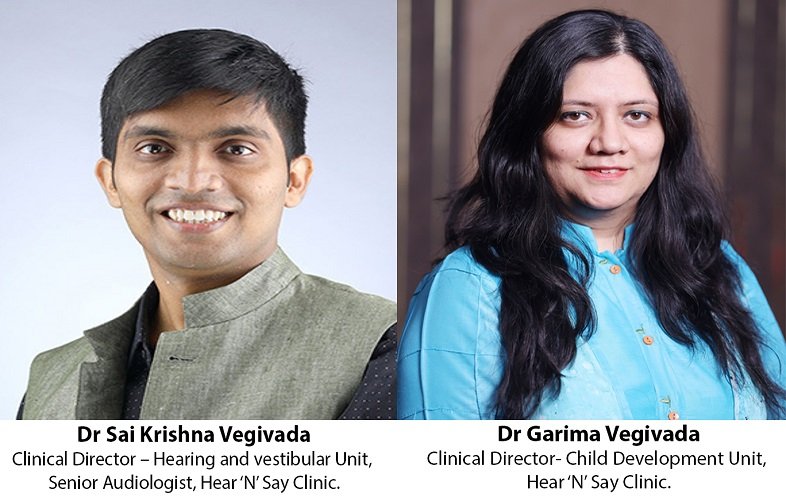
As we commemorate the World Autism Day on 2nd April, 2023, there have been several momentous developments from research done on Autism, in the recent past. These findings raise the expectations of early detection and prevention of autism and management of autistic kids. The two significant outcomes are, response of toddlers to ‘motherese’ or baby talk and regular developmental screening. These can aid in identifying children with a high risk of autism at an early stage and remedy their condition.
Motherese is a form of simplified, exaggerated melodic speech that parents use to communicate with new-borns and young toddlers. A horse becomes horsie; a dog becomes doggie; parents become mama and dada. The tendency to speak in such short sing-song phrases is universal across cultures. We all heard of mother conversing with their bundle of joy by uttering ‘mummum’ for water or lala in Telugu, meow meow for cat etc., all of which is Motherese.
Recent studies by the University of California, San Diego; indicated that the early sign of Autism Spectrum Disorder (ASD) in children is reduced response to motherese speech and challenges faced in sustained attention to social information in general. This study published on February 8, 2023, states, Toddlers’ level of attention to ‘motherese’ speech can be used as a biomarker for Autism Spectrum Disorder. To measure the response levels, scientists have developed a new eye-tracking test, which can accurately identify toddlers with a subtype of ASD.
These revelations hold immense promise to early detection of Autism in infants. We at Hear n Say Clinic have taken the cue from the study and are encouraging mothers of new born babies to use motherese as a response evoking technique and found good measure of success. If a child doesn’t respond to motherese at the age of 1 to 2 years, then its time to seek help from a professional, says Dr Garima Vegivada, Clinical Director – Child Development Unit, Hear ‘N’ Say clinic.
The other technique to identify the risk of autism in children is regular developmental screening during well-child check-ups or check-ups involving visits to paediatrician for general check-ups or vaccinations. Parents should request paediatricians to screen child for any autistic feature or red flags and refer them for appropriate evaluations.
Another study emphasised on collecting Brain-wave data during hearing test routinely given to new-borns. Such data could help clinicians spot neurodevelopmental disorders such as autism in early infancy. Researchers found that new-borns who later received an autism spectrum disorder diagnosis had pronounced delays in their brainstem’s responses to sounds. On an average these new-borns had a 1.76-millisecond lag in a system that operates at a microsecond timescale, compared to new-borns who developed neurotypically.
These new-borns may have difficulty integrating sound with other sensory streams like vision, movement, and pain because of limited access to sound frequency. Furthermore, they may have difficulty communicating socially and learning languages. The research, published by Proceedings of the National Academy of Sciences (PNAS Nexus) and led by Rutgers psychology professor Elizabeth Torres, suggests a possible approach for developing a universal screening tool for neurodevelopmental disorders with new avenues for targeted personalized treatments.
We routinely perform BERA (Brainstem Evoked Response Audiometry) test at Hear ‘N’ Say Clinic, as a part of hearing assessment on children as young as one month. Any delay in response found through this test helps parents to be aware of possible diagnosis of autism in future but it comes with its own challenges, like cost of the test, also sometimes need to administer mild sedation under supervision to the child for this test and parents are often apprehensive of it, says Dr Sai Krishna Vegivada, Clinical Director – Hearing and vestibular Unit, Senior Audiologist – Hear ‘N’ Say Clinic.
However, the biggest challenge we face in India is lack of universal hearing screening among new born babies. Several professionals and parents have the notion of child with normal hearing ability not needing hearing screening. But with latest studies indicating the usefulness of new born hearing screening for early detection of ASD, it is imperative to have nation-wide universal new born hearing screening.
Any delay in diagnosis of ASD will lead to ASD child developing compensatory coping mechanisms of their nervous systems and having circuitry different from neurotypical babies. On the other hand early diagnosis of autism allows for earlier access to interventions, which can help improve outcomes for children with ASD. Research has shown that early intervention can lead to improvements in communication, social skills, and cognitive abilities.
Early diagnosis also allows families to access support and resources that can help them better understand and support their child. Families can learn about strategies and therapies that can help improve their child’s development and behaviour.
Early diagnosis can reduce stress and uncertainty for families. It can help them understand their child’s behaviour and needs, which in turn can lead to a more positive and proactive approach to parenting, At Hear ‘N’ Say we have seen lot of parents struggling in the marriage because of child having issues.
Early diagnosis allows families and educators to plan for the child’s educational needs. With a diagnosis, the child can receive specialized education services and accommodations that can help them succeed in school.
Leave a Reply